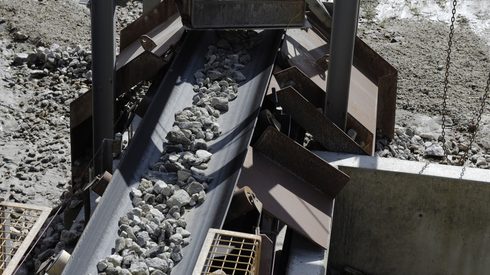Concerns over supply disruption and a gloomy outlook of the Chinese paper and board market for the first quarter have been roiling the Chinese pulp sector over the past two weeks.
AV Terrace Bay announced temporary closure of its 320,000 tonne per year northern bleached softwood kraft (NBSK) pulp mill in Canada on January 2 due to prevailing market conditions. Participants in China have got wind of another two Canadian NBSK mills facing closure if NBSK prices in the Chinese market drop below $700 per tonne.
Right before the Christmas holiday last month, muted demand and sluggish pulp futures in China forced both Canadian and Nodic producers to cut NBSK prices there by $20-30 per tonne.
The erosion had brought the grade’s levels to $700-760 per tonne during last week and the preceding one.
Last week, Arauco revised down its radiata pine prices by $20 per tonne, saying the revision were in line with NBSK pricing for January orders.
Other suppliers have followed suit, cutting prices for the grade.
Available radiata pine tonnages were reportedly snatched up by mainly futures investors.
Prices for radiata pine has been assessed this week at $730-760 per tonne, down $20 per tonne from Fastmarkets’ assessment for the grade three weeks ago.
Contacts said that investors have not yet used the radiata pine or NBSK tonnages they have snapped up as open interest to arbitrage on the Shanghai Futures Exchange, as prices for bleached softwood kraft (BSK) pulp futures contracts were still too low, despite some rises during last week.
Investors are looking at a possible rebound coming shortly in view of the volatile nature of futures, which can shoot up in a just a few days, compared to the much slower price movement in physical pulp trading.
Most of the tonnages put into the futures market for arbitraging for the past few weeks belong to Russian BSK, whose import prices are not transparent as suppliers and their limited number of trader buyers have decided not to disclose them to the market.
Participants have assessed Russian BSK levels at $650-680 per tonne, based on the price of the grade pegging to futures and on its resale levels in China.
NBSK prices hold steady
Nordic producers announced on Wednesday January 10 a hike of $20 per tonne for NBSK imports in China, attributing the proposed rise to the Red Sea shipping diversion.
Facing increases of $40-50 per tonne for pulp cargoes shipped from the Nordic region to China resulting from the Red Sea crisis, sellers intend to pass the extra costs partially on to Chinese buyers.
Customers have so far given the cold shoulder to the planned increases.
However, contacts pointed out that buyers reckoned BSK prices being near the bottom in view of the potential closure of Canadian NBSK mills and were making inquires with suppliers for opportunities of getting more volumes.
Prices for both Canadian and Nordic NBSK have been assessed at $700-760 per tonne this week, flatling from last week, with the mid-point for the grade steady at $730 per tonne.
BHK levels are currently flat due to lack of demand
Led by Suzano, several suppliers have been seeking an increase of $10 per tonne for South American bleached hardwood kraft (BHK) pulp.
But stagnant paper and board demand and prices stemming from overcapacity have prompted buyers to cut volumes and resisted the proposed hike for the grade.
Sources reported that suppliers who sought the $10 per tonne have consented to keep prices intact to buyers who agreed to fulfil monthly contract volumes with a commitment to accept the hike for February orders.
According to sellers and buyers, prices for South American BHK have remained unchanged at $640-660 per tonnne.
The Red Sea shipping crisis have also disrupted exports of paper and board from China to Europe and the Middle East.
A major producer indicated that the shipping surcharges his company paid amounted to $2,000-3000 per 40-foot containers for outbound paper and board cargoes shipped from China to those two regions.
Moreover, exports of general goods from China are facing the hefty ocean freight rates and getting disrupted, which will hurt demand for especially packaging grades in the country.
“Initially when the Red Sea crisis hit the market last month, shipping companies were jacking up surcharges not only for the routes from China to Europe and the Middle East, but also for other routes including to other Asian countries. That was ridiculous,” quipped the source.
“The situation has much calmer and the surcharges have dropped. I believe the Red Sea impact will be short-term and eventually be regional.”
Want to learn more about the global pulp markets? We provide a range of market intelligence, including short-term forecasts, price data and market coverage to keep you one step ahead of the market. Speak to our team and find out more today





